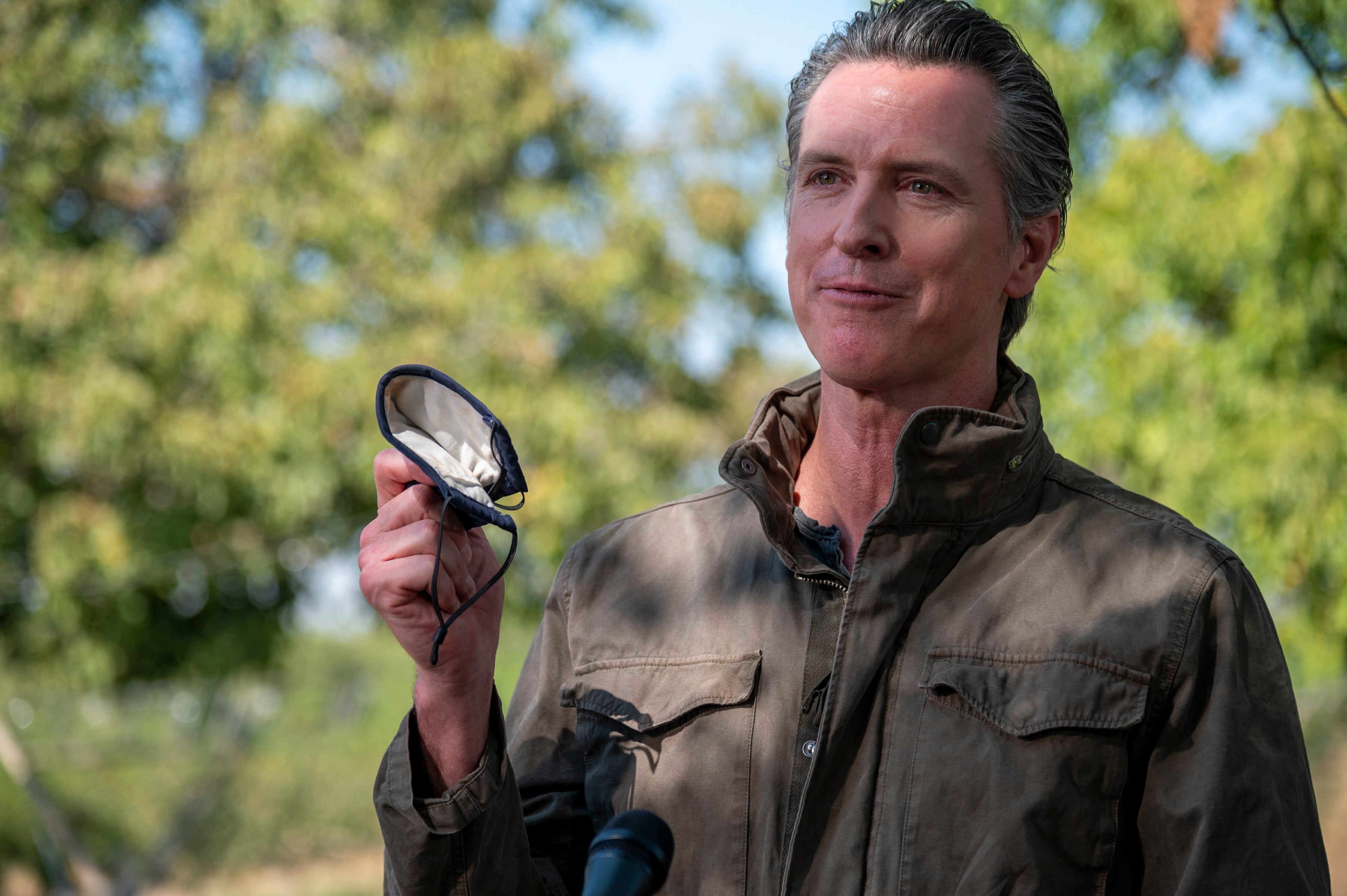California won't allow virus vaccines without state approval
Gov. Gavin Newsom says California won’t allow any distribution of new coronavirus vaccines in the nation’s most populous state until it is reviewed by the state’s own panel of experts

Your support helps us to tell the story
From reproductive rights to climate change to Big Tech, The Independent is on the ground when the story is developing. Whether it's investigating the financials of Elon Musk's pro-Trump PAC or producing our latest documentary, 'The A Word', which shines a light on the American women fighting for reproductive rights, we know how important it is to parse out the facts from the messaging.
At such a critical moment in US history, we need reporters on the ground. Your donation allows us to keep sending journalists to speak to both sides of the story.
The Independent is trusted by Americans across the entire political spectrum. And unlike many other quality news outlets, we choose not to lock Americans out of our reporting and analysis with paywalls. We believe quality journalism should be available to everyone, paid for by those who can afford it.
Your support makes all the difference.California won't allow any distribution of new coronavirus vaccines in the nation’s most populous state until it is reviewed by the state’s own panel of experts, Gov. Gavin Newsom said Monday.
Vaccinations for the pandemic “will move at the speed of trust,” said Newsom, a Democrat, and the state wants its own independent review no matter who wins the presidential election next month.
“Of course we won't take anyone's word for it,” Newsom said as he named 11 doctors and scientists to review any rollout of vaccines by the federal government or vaccine developers. They hail from top California top universities and medical providers, along with state and local public health officials.
The pledge raises the possibility that California residents might not receive a vaccine as distribution begins in other states, though the governor said widespread vaccinations are unrealistic until sometime next year.
New York Gov. Andrew Cuomo last month appointed a similar independent task force.
At most, 45 million doses will be available nationwide before the end of this year from the two most advanced vaccines, Newsom said. Each person must receive two doses, three weeks apart.
If California were to receive 12% of the doses, commensurate with its percentage of the nation's population, that would be 5.4 million doses, or enough to treat 2.7 million of the state's nearly 40 million residents.
Most would go to front-line medical workers and first responders, he said, then to the most vulnerable in the population.
But the distribution and record-keeping logistics alone are massive, he said, including a requirement that the vaccines be kept in continuous cold storage until they are administered.
One of the two leading vaccines requires “ultra cold” storage — think dry ice — of minus 70 Celsius, or minus 158 degrees Fahrenheit. The other needs a minus 20 Celsius, or 68 degrees Fahrenheit below zero.
“They need to be stored in an extraordinarily challenging environment,” Newsom said, though the state has done so before with other medications. But he said that’s why the state needs an expert panel that understands the “panoply of issues that will be required to ultimately advance this effort.”
California last week gave the federal Centers for Disease Control and Prevention its early plans for how it would handle and distribute the vaccine, and in return received nearly $29 million to continue its planning efforts.
California is one of five jurisdictions doing what Newsom called “micro-planning” for mass distributions, which he predicted could come as soon as next spring, is more likely next summer, but could be as late as next fall.